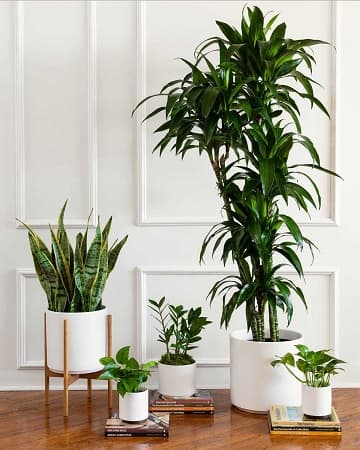The Secret Life of Office Plants
Office plants aren’t just decoration. They gossip, wage silent battles for sunlight, and quietly shape the mood of your workspace in ways you’d never expect.
Most of us walk into an office and barely notice the plants scattered around. A pothos drapes lazily over a shelf, a snake plant stands guard in the corner, maybe a cactus sits on someone’s desk. They seem like simple background decoration. But if you spend enough time observing them, you’ll realize that office plants live secret lives—quiet dramas unfolding in pots and planters while we humans stare at screens.

First, there’s the battle for sunlight. Put two plants near the same window and you’ll notice subtle positioning. Leaves stretch, twist, and lean toward the light like dancers competing for a spotlight. A pothos vine will happily crawl across another plant’s space if it means catching more rays. Meanwhile, the cactus just sits stubbornly, confident that it can survive on the crumbs of sunlight left over.
Then there’s the gossip. No, they don’t whisper in words, but plants communicate chemically. Studies have shown that when one plant is stressed—say it’s thirsty or attacked by pests—it can release compounds that nearby plants pick up on. Your seemingly peaceful office jungle might actually be buzzing with invisible alerts and subtle warnings, a green version of Slack messages flying back and forth.
Some plants even shape the office mood. Peace lilies, for example, are masters of drama. Neglect them for a day and they wilt like Shakespearean actors, begging for sympathy. A quick splash of water, and they rise again, triumphant and radiant. Their theatrics can make coworkers feel oddly guilty or oddly proud, depending on who last watered them.
Of course, not all plants are divas. Snake plants are the stoic introverts of the plant world. They sit there quietly, month after month, purifying the air and asking for almost nothing. It’s no wonder so many offices keep them around—they’re reliable coworkers. But even stoics have their quirks. Overwater them, and they’ll rot in protest, proving that patience has limits.
And don’t forget the cactus, often chosen as a symbol of resilience. In truth, many office cacti are less resilient than they appear. They survive long periods of neglect, yes, but move them to a dark cubicle and they sulk. Give them too much water, and they collapse dramatically. They’re less the “tough guy” of the plant world and more like the intern who seems strong but secretly wants very specific conditions to thrive.
In a way, office plants reflect the people who care for them. The meticulous coworker trims dead leaves regularly. The forgetful one lets their fern dry into crispy brown lace. The optimistic one buys orchids, convinced they’ll get them to bloom again. Each plant becomes a tiny mirror of human habits, anxieties, and hopes.
So next time you pass by the greenery in your office, pause for a second. That ivy might be plotting a takeover of the bookshelf. The ficus could be sulking because someone moved it away from the window. And the cactus on your desk? It might just be silently judging your coffee addiction.